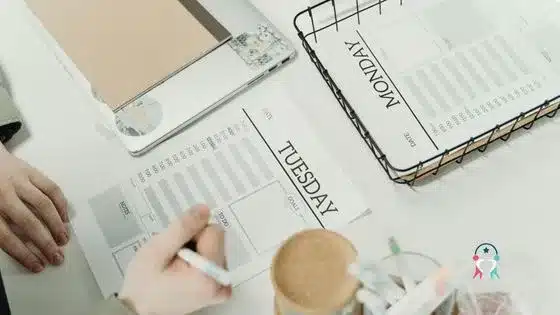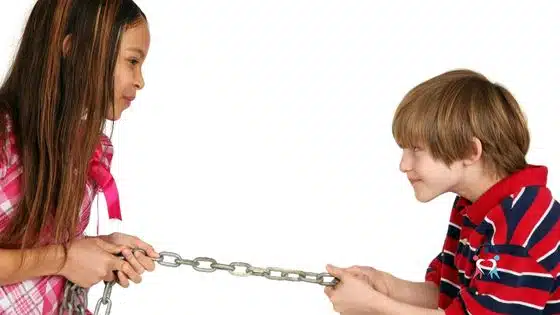Proven Parenting Strategies to Help Children with ADD or ADHD
Raising a child with ADD/ADHD is exhausting, unpredictable and sometimes overwhelming. But with the right strategies in place, you can transform chaos into calm and help your child thrive. This article is your map to navigate and master positive behavior strategies, with parenting tips that work and will help you support and guide your child without losing your mind!
First, let’s make sure we have a good understanding of what we are dealing with:
Attention Deficit Hyperactivity Disorder (ADHD) is a condition that affects the way a child processes information and interacts with their environment. The effects are difficulty in focusing, controlling impulses, and managing emotions.
Attention Deficit Disorder (ADD) is a condition that interferes with daily functioning. Children with ADD has difficulty focusing and staying organized, and following through on tasks. Today ADD is used to refer to Predominantly Inattentive Type ADHD.
The Rise in ADHD Diagnosis
Facts:
-
- Over the last twenty years, we’ve gone from 1 in 20 children to 1 in 9 being diagnosed with ADHD, and 14.5% of boys have an ADHD diagnosis. While approximately 6% of girls are diagnosed with ADD.
-
- Girls are diagnosed with ADHD half as much as boys. However, experts tell us that symptoms in girls are harder to identify.
-
- Since girls are unlikely to be leaping over furniture, their symptoms are less noticeable. Girls usually are more likely to be inattentive and not hyperactive.
So if you think there’s been a significant increase in kids with ADHD, then you are right, and this increase is attributed to the Internet, the U.S. Educational Standards, and pharma marketing of ADHD drugs.
Types of ADHD and Common Behaviors
-
- Inattentive (often called ADD): Difficulty following instructions, losing things often, and having trouble finishing tasks.
-
- Hyperactive-Impulsive: Restlessness, climbing on things when it’s inappropriate, blurting out answers before a question is finished, and struggling to stay seated.
-
- Combined Type: A mix of the above behaviors, such as having trouble staying focused on tasks while also being restless or acting impulsively.
As a parent with a child diagnosed with ADHD, you want as much information as possible. You want your child to learn how to manage the condition and lead a happy and healthy life. And one of the best things in this situation is that you, the parent, need to adjust your parenting style to help your child excel and live a happy and successful life.
The Best 7 Tips for Parents of Children with ADHD or ADD
Here are some tips to help you improve your parenting, resolve conflicts and get the most from your child.
Tip 1: Model the Behavior You Want to See
Do you want your child to have strong relationships with family and friends, be emotionally stable, and have good mental health, you must show them these behaviors. They need to learn from you how to show love, care, and passion for others and how to live fully.
Tip 2: Get Organized to Reduce Stress and Establish Consistency

If you want to make life easier and help your child get control of their behavior and emotions, you need to get organized.
- Start by setting a routine and a schedule. Think about it, when we know what is expected of us and understand what comes next, we are less anxious, we can anticipate or look forward to the good parts of the day and minimize stressful transitions.
- Break up tasks into smaller steps, like having the child write down their homework assignment before doing it so that they can stay focused on each step.
- Plan the downtime and breaks. This is good for both of you.
- Use charts, calendars, and post-it notes to keep track of their daily activities and to remind them of what they need to do. These visual cues are a simple way to structure tasks, create expectations, and remind your child of your expectations.
- Using pictures or symbols next to each item on a daily task list can help keep your child on track.
- Use photos or pictures to remind your child of multiple steps when dealing with complex tasks.
- Make a chart that keeps track of completed tasks or goals with stickers or other visuals. Reward your child with extra game time or something they want when the chart is complete.
Visual cues are a good way to positively reinforce good behavior and help them easily keep track of what, when, and how to do what they need to do. These tools are effective and will help you and your child manage and improve behavior.
Tips 3: Encourage Good Habits Through Positive Reinforcement

Behavioral modification is one of the most effective approaches to changing kids’ behavior. It involves setting up a system of rewards and punishments to reward positive behaviors.
- Start by setting clear expectations and providing specific feedback then reinforce positive behavior with rewards.
- Give your child rewards for following the daily routine, and they’ll be more likely to follow it consistently. If your child completes their homework on time, give them praise and a reward.
- Recognize desired behavior immediately.
- Use praise and tangible rewards like special privileges, a simple gift, or some extra screen time.
- To help them understand what they are doing right, be specific on what behavior is being rewarded and why. Reinforce why the behavior matters and how it can positively impact their life or those around them.
Rewarding good behavior can help shape your child’s behavior and encourage them to stay on the right track.
Tip 4: Effective Discipline for ADD/ADHD Children: Choose Your Battles Wisely

Your child needs and wants consistent discipline for their growth and emotional development. Discipline teaches children respect, responsibility, and it will serve them for their entire life.
- When you have to discipline your child, make sure they understand why.
- Use discipline sparingly; with a kid with ADHD, you will need to choose your battles. You can not correct a child every time they make a mistake or break a rule, or it will become less effective.
- Choose your battles. Consider what behavior requires urgent intervention and what can be dealt with later.
- Be clear about the rules, what you expect from them, and what will not be tolerated.
- Understand the difference between your kid making poor choices, not knowing any better, or being unable to manage their impulses. Do not overreact!
- Be consistent but be careful to avoid being so concerned with their behavior or attitude that you become overbearing or frustrated.
- Choose what warrants discipline and when to focus on behavior modification. Understanding the difference matters more than you know.
- If your child misbehaves, follow through on the consequences.
Studies show that yelling and nagging a child with ADHD results in higher levels of anxiety, stress and depression as they get older. It damages the trust and hurts the parent-child relationship which will have significant consequences as your child becomes a teen. Furthermore, when you yell you look weak and out of control, and you are setting a poor example.
Tip 5: Consistency to Foster Self-Control, Build Trust & Stability

Consistency is necessary with all kids but particularly important when parenting a child with ADD/ADHD. Consistent follow-through helps children develop better self-control, reduce negative behaviors, and build their sense of security.
- Consistent rules and expectations help them understand what you expect. Knowing what is expected of them helps them feel secure.
- Use the same words and consequences each time a rule is broken. This can help your child better understand and remember the consequences of their actions.
- Reward them EVERY time they do what you expect and whenever they do well!
- Use behavioral modification techniques like rewards for good behavior consistently to teach to associate good behavior with rewards. Praise their small and big successes and remember to encourage them often.
Tip 6: Minimize Conflict by Avoiding Power Struggles

Two ADHD traits are often defiance and stubbornness. Make an effort to create an environment where they feel comfortable expressing themselves without fear of punishment.
- Avoid confrontations, as they can cause frustration and stress for both the parent and the child.
- Communicate calmly and be clear. Keeping your emotions in check teaches your child how to control their emotions.
- Set clear limits and boundaries to prevent power struggles from occurring in the first place.
- Be patient and practice self-care!
- Seek professional help like therapy, cognitive behavior modification, support groups or counseling.
Tip 7: Empower Your ADD/ADHD Child by Leveraging Technology

Technology is a powerful motivator; it’s also an excellent tool for parenting ADHD kids. It can be used to modify a child’s behavior and reinforce good behavior, and teach new skills. It can also be a fun way to practice educational activities and new skills.
- Use a digital calendar app to help your child stay organized and keep track of assignments, tasks, and other important information with alerts and reminders throughout the day.
- Use games and interactive activities as a reward for good behavior.
- Use apps or game that encourages focus by providing feedback and positive reinforcement.
- Use educational apps and games specifically designed for children with ADD/ADHD. These apps are designed to teach skills such as organization, self-regulation, and communication.
Technology can be used to both encourage and reward good behavior and new habits. It can help provide structure and support for children with difficulty concentrating.
Small Steps, Big Impact: How Consistency Nurtures Growth
Every parent wants to give their child the best possible upbringing. Nevertheless, remaining empathetic and caring in the face of rebelliousness, inattentiveness, and repetitive disobedience can be very challenging. According to Dr. Sharon Saline, the most effective tactics for parents of ADHD kids are:
- self-control
- compassion
- collaboration
- consistency
- celebration
Lastly, remember to find ways to connect with your child.
- Plan fun activities
- Encourage conversation
- Explore new apps together
- Watch movies
- Go out to eat
- Do something they like
Spending time together is the best way to build stronger relationships and create lasting memories. Every small step you take makes a big difference in your child’s life. Stay consistent, stay compassionate, and watch as your child grows into the amazing person they’re meant to be.
We hope these tips will prove useful for your child. We’d love to hear from you about the strategies that worked well for you.
Read Next: Other ADHD Resources for Parents
What a parent should know about ADHD behavior problems
Tips for selecting an ADD or ADHD private school
Back to School Apps that are helpful for kids with ADHD
Share or Download the ADHD Strategies to Support a Child with ADHD (Infographic)
















